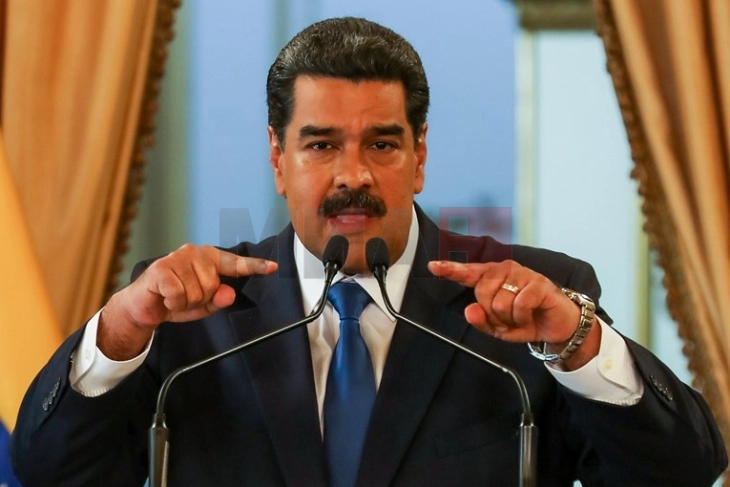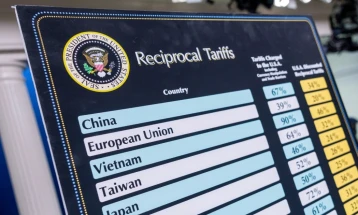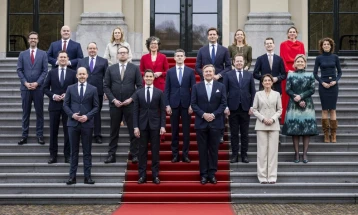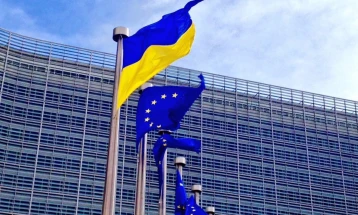Venezuela's Maduro sworn in for new term amid backlash and sanctions
- Venezuela's authoritarian President Nicolás Maduro was sworn in for a third six-year term on Friday, following an election that many in the international community and the opposition considered rigged.

Rio de Janeiro, 11 January 2025 (dpa/MIA) — Venezuela's authoritarian President Nicolás Maduro was sworn in for a third six-year term on Friday, following an election that many in the international community and the opposition considered rigged.
State television showed the president of the National Assembly, Jorge Rodríguez, placing the presidential sash around Maduro's neck.
The United States, Britain, Canada and the European Union responded by slapping new sanctions on Venezuelan officials close to the president.
Washington announced punitive measures targeting eight individuals, including the president of the state-owned oil company PDVSA and the president of the state-owned airline Conviasa, as well as senior military and police officers.
"Since last year's election, Maduro and his associates have continued their repressive actions in Venezuela," said Acting Under Secretary of the Treasury for Terrorism and Financial Intelligence Bradley T Smith.
The US State Department also increased the reward offers to up to $25 million each for information leading to the arrest of Maduro and Interior Minister Diosdado Cabello, the Treasury said in a statement.
Canada, Britain and the EU also announced new sanctions on Venezuelan individuals following Maduro's swearing-in ceremony.
London sanctioned 15 individuals associated with Maduro, including military officials and judges, while the EU member states extended punitive measures to 15 additional members of Venezuela's electoral authority, the judiciary and the security forces.
The EU's foreign policy chief Kaja Kallas said Maduro "lacks the legitimacy of a democratically elected president."
Maduro's rival candidate in the election, Edmundo González, who has since fled the country, had announced his intention to return to be sworn in as president of the South American country, despite an arrest warrant issued against him.
This will happen once "the conditions are right," opposition leader María Corina Machado said, accusing the Maduro regime of violating the constitution.
González, who at the beginning of September left for Spain where he applied for political asylum, has declared himself the winner of the July presidential election.
In a video posted on his X account following Maduro's swearing in, González referred to himself as "the elected president of the Republic of Venezuela," and accused Maduro of carrying out a coup d'etat.
"I represent the will of almost 8 million Venezuelans within the country, and that of the millions of compatriots who were prevented from voting abroad, and I have a duty to defend that mandate," González said.
He added that he was "ready" to return to Venezuela "at the right moment" and called on the country's military to "reject illegal orders" issued by Maduro's regime.
"I continue working to set up the conditions for my return to Venezuela and to assume the presidency of the republic," González said.
The US, Canada and several Latin American countries recognize González as the true winner of the vote.
However, the electoral commission, which is loyal to the ruling party, declared Maduro, who has been in power since 2013, the winner.
The EU has not recognized Maduro's victory, instead demanding the publication of the election documents, a request the electoral authority is yet to fulfill.
There was a large security presence for Maduro's swearing-in ceremony on Friday, with the armed forces deployed to the streets of Caracas to ensure there were no disruptions.
Only a few high-ranking state guests attended the inauguration, including Nicaragua President Daniel Ortega and Cuba President Miguel Díaz Canel.
China and Russia, important allies of Maduro, sent special delegates.
Latin American states such as Brazil, Colombia and Mexico were only represented by diplomats.
One day before Maduro's inauguration, thousands of people took to the streets in Venezuela to protest against him.
For the first time in months, Machado also made a public appearance and was enthusiastically received by crowds at a rally in Caracas.
According to her own account, she was briefly arrested afterwards and later released. Cabello denied this occurred.
According to the United Nations International Independent Commission of Inquiry, several people have been arrested in the country in the last few days.
The government recently reported the arrest of more than 120 foreign nationals on suspicion of terrorism.







